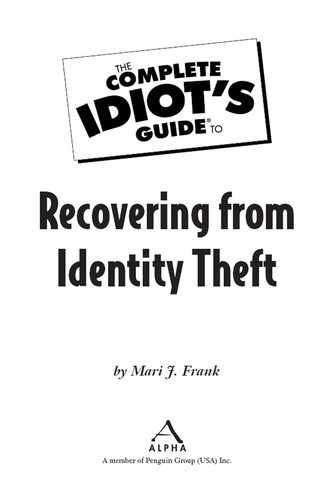Personal Civil Cases
In a personal civil case, someone or some entity is suing you for some wrong done by the fraudster. It might be a creditor who issued credit to the fraudster, who didn’t pay the bills. It could be for your impostor’s breach of contract in a business dealing done under your name. It could be for a personal injury resulting from some negligent action taken by your impostor, like an automobile accident. It could even be a judgment of child or spousal support if your impostor married and had children using your identity and subsequently left or divorced.
As a result, someone is suing you and may even have obtained a judgment or a lien. An engineer victim called me after he was sued by a company that allegedly hired his impostor to design a building that failed.

Legal Lingo
A judgment is the decision or opinion by a court that determines a disputed matter. If there is a judgment against you as the defendant, you are ordered to pay or do some action (like fulfill a contract) in favor of the plaintiff(s) who sued you. A lien is a court order giving a person or company a legal interest in your property as security for a debt owed.
You’re Sued or Threatened with a Suit
If a company or lawyer threatens that it intends to sue you, you’ve just received good news. Things are still in a state where, by proving the identity theft, you have a chance to convince the company or person that you are not the culprit and to either not file or dismiss an action with the court.
Once you learn of the intended lawsuit, immediately contact whoever notified you by phone to explain the situation. Follow up with a letter, return receipt requested, with your identity-theft report, FTC affidavit, copy of your driver’s license, and all other pertinent evidence. Request, pursuant to FCRA 609e, copies of all documents and proof of their claim against you.
You should be able to resolve this without an attorney, but make sure that you get a letter from the entity that threatened the legal action, notifying you that your fraud claim has been accepted and no further action will be made and your credit report will be corrected. If you’re told the case is dismissed, get a copy of the filed dismissal and check back later with the court’s online website to be sure that the records reflect that the case shows the dismissal.
A Court Judgment Against You Exists
You will learn of a lien or judgment already entered with a court in one of four ways:
♦ As an entry on the public-records section of your credit report
♦ From your employer in the form of a wage attachment
♦ From your bank in the form of funds taken from your account to satisfy a lien
♦ Directly from the court
Contact the court clerk where the judgment was entered or the lien filed. Call first to get the case number and all particulars about how to obtain the entire file. Ask the court clerk to give you the name and contact information of the plaintiff’s attorney who brought the action, as well as the identity-thief’s attorney, in the unlikely event that there was one.
Next, send a letter documenting the conversation—including copies of the law-enforcement report, affidavit, and your driver’s license—to the court and the plaintiff’s attorney. Call the plaintiff’s attorney and explain the circumstances and request copies of all the paperwork on the case.
Unfortunately, the attorney may not wish to help you because it is not in his or her best interest. No matter what, get the court filings online or contact the court for how to get the filed documents. Be aware that not all documents will be in the court’s possession. For example, such discovery documents as depositions and interrogatories are not filed with the court. Depending on where the suit was filed, you may bring or send your identity-theft report and evidence of your identity to the judge to have the case against you dismissed. Ask the judge’s clerk what action you may take to remedy the situation.
If the plaintiff’s attorney is unwilling to assist you to correct the judgment or remove the lien, you may need to hire legal counsel in the jurisdiction where the case was filed. Depending on the circumstances of the fraudster’s activities, the suit could have been filed in virtually any state. You may have to travel to take the necessary action. Call the local bar association in the court’s jurisdiction and ask for a referral for a lawyer experienced in the type of case before the court; if it is a credit-card company, for example, you will need a consumer lawyer experienced with FCRA and identity theft. If it is a child-support matter, ask for a family-law attorney who also understands identity theft.

Identity Crisis
Deal directly with the attorney who filed the case and don’t try to speak with the person or company directly. In fact, the company probably will refer you to the legal counsel who handled the case, who would know the situation the best. A reputable, professional attorney will more easily understand the situation. At the very least, he or she will know the necessary steps to follow to rectify the situation. An ethical attorney will inform the company or person who brought the suit of the fraud and go to court to dismiss you from the case.
If the plaintiff is unwilling to drop the action, even though it is clear that it has been wrongly brought against you, you must contact the court clerk and the judge in charge of the case with all the information. Explain that you are wrongly identified as the defendant. In such a circumstance, you may need to hire a lawyer who understands identity theft and the issues of the case. You may also have a cause of action against the plaintiff for its own negligence in suing and causing you to incur attorney fees and other costs and damages.
..................Content has been hidden....................
You can't read the all page of ebook, please click here login for view all page.
